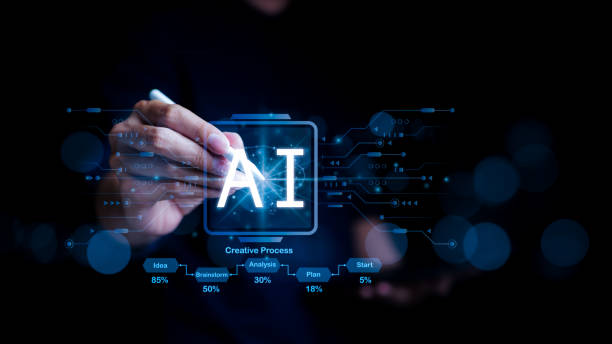What is an AI Robot? A Comprehensive and Practical Definition
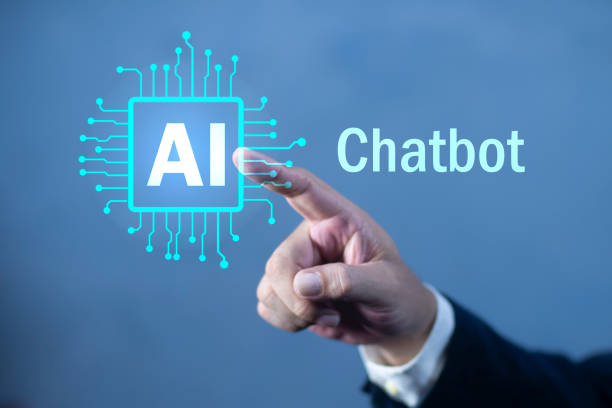
#AI_Robot or in short #AI_Robot, is a computer system designed to mimic human cognitive abilities, including learning, problem-solving, and decision-making.
These systems, using complex algorithms and large datasets, are capable of performing tasks that previously required human intervention.
An AI robot is essentially software capable of processing information, identifying patterns, and generating intelligent responses.
These responses can include text, images, audio, or even executable commands.
The main goal of developing AI robots is to automate processes, increase productivity, and provide innovative solutions in various fields. An AI robot, by utilizing #Machine_Learning and #Natural_Language_Processing techniques, is capable of improving its performance over time.
In other words, the more data an AI robot encounters, the greater its ability to provide more accurate and relevant responses.
Artificial Intelligence, as a key technology in today’s world, is transforming various industries including healthcare, education, transportation, and finance.
Don’t have a company website yet and missing out on online opportunities? With professional corporate website design by Rasawweb,
✅ Double your business credibility
✅ Attract new customers
⚡ Free consultation for your corporate website!
The Evolution of AI Robots from Past to Present
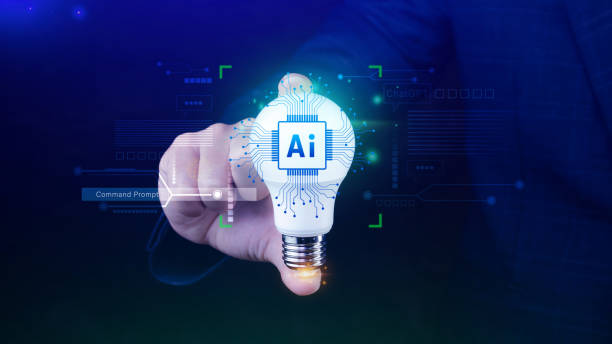
The history of #AI_Robots dates back decades, when the idea of creating machines capable of thinking and learning was first proposed.
Initially, efforts were primarily focused on building expert systems that could provide solutions in specific domains.
However, with technological advancements and increased computational power, it became possible to develop more complex algorithms and process large datasets.
This led to the emergence of new approaches in #Deep_Learning and #Neural_Networks, which brought about a fundamental transformation in the field of #Artificial_Intelligence.
Today, an AI robot is not only capable of performing simple and repetitive tasks but can also perform acceptably in complex areas such as image recognition, natural language processing, and big data analysis.
The evolution of #AI_Robots continues, and it is expected that in the near future, we will witness the emergence of more intelligent systems capable of interacting more closely with humans and solving more complex problems.
Main Components of an AI Robot
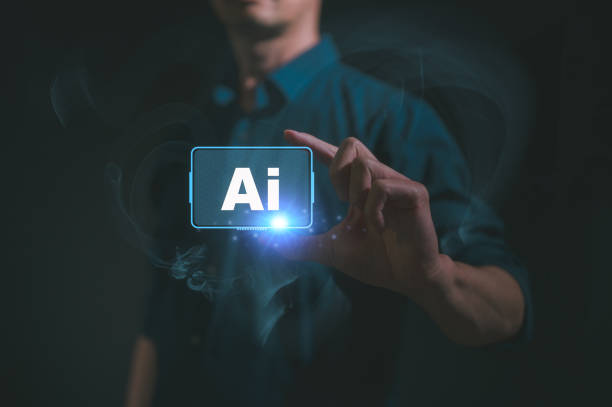
An #AI_Robot is composed of several main components, each playing a crucial role in the overall system’s performance.
These components include: 1- Datasets 2- AI Algorithms 3- Processing Infrastructure 4- User Interface.
#Datasets serve as the primary source of information for training the AI robot.
The more extensive and diverse the data, the more capable the robot will be of learning complex patterns and providing more accurate responses.
#AI_Algorithms are the intelligent brain of the robot, responsible for processing data, identifying patterns, and making decisions.
There are various types of AI algorithms, each designed for specific applications.
#Processing_Infrastructure includes the hardware and software required to run AI algorithms and process data.
As algorithms become more complex and data volumes increase, the need for more powerful processing infrastructure becomes apparent.
#User_Interface is the bridge between the AI robot and the user, enabling interaction and output reception.
A suitable user interface should be simple, user-friendly, and tailored to the user’s needs.
Overall, the correct interaction of these components leads to the formation of an efficient and effective AI robot. AI robots can accelerate processes in many businesses.
| Component | Description | Example |
|---|---|---|
| Datasets | Data used for training the robot | Images, text, audio |
| AI Algorithms | Data processing and decision-making algorithms | Neural networks, machine learning |
| Processing Infrastructure | Hardware and software required for execution | Processors, memory, operating system |
| User Interface | Communication bridge between robot and user | Website, mobile application |
Amazing Applications of AI Robots in Various Industries
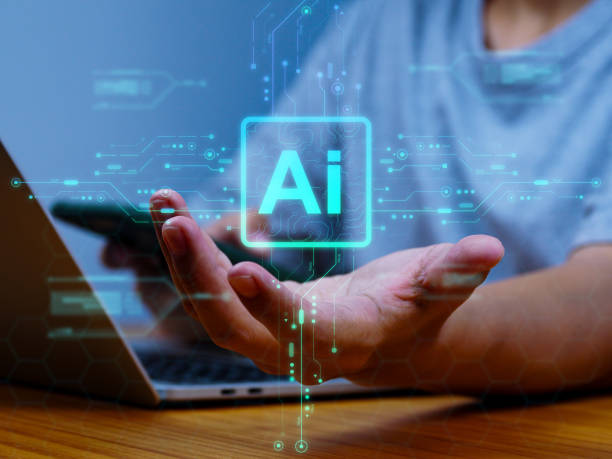
#AI_Robots have extensive applications in various industries and are rapidly becoming an essential tool for businesses and organizations.
In #Healthcare, #AI_Robots are used for disease diagnosis, providing personalized treatments, and assisting surgeons in complex operations.
In the #Automotive_Industry, intelligent robots play a crucial role in production lines, quality control, and autonomous driving.
In the #Financial_Industry, #AI_Robots are employed for fraud detection, risk management, and providing financial advisory services.
In #Education, #Intelligent_Robots can be used as teaching assistants, providing personalized content, and evaluating student performance.
Furthermore, #AI_Robots have numerous applications in #Customer_Services, #Marketing, #Manufacturing, and many other fields.
Given the continuous advancements in #Artificial_Intelligence, it is expected that the applications of #AI_Robots will become much broader and more diverse in the near future.
Research shows that 80% of customers trust companies with professional websites more. Does your current website inspire this trust?
With Rasawweb’s corporate website design services, permanently solve the problem of customer mistrust and a weak online image!
✅ Create a professional image and increase customer trust
✅ Attract more sales leads and grow your business
⚡ Get free consultation
Pros and Cons of Using AI Robots; A Realistic Look
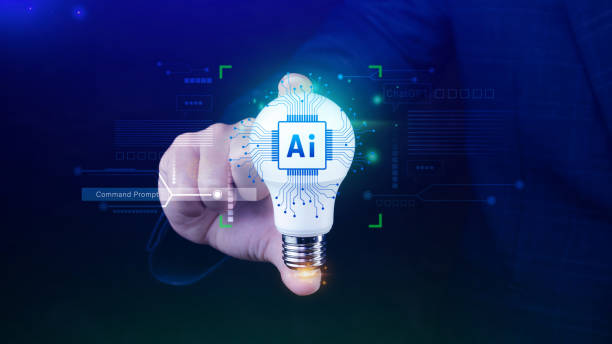
The use of #AI_Robots has its own advantages and disadvantages that need to be thoroughly examined.
Among the main advantages of #AI_Robots are increased productivity, reduced costs, improved accuracy, and the provision of innovative solutions.
#Intelligent_Robots are capable of performing repetitive and tedious tasks with higher speed and accuracy than humans.
This leads to increased productivity and reduced operational costs.
Additionally, #AI_Robots can analyze large datasets to identify patterns that remain hidden from human sight, thereby offering novel and creative solutions.
However, the use of #AI_Robots also has disadvantages.
These disadvantages include high implementation costs, the need for technical expertise, ethical concerns, and the potential loss of job opportunities.
Implementing an #AI_Robot system requires a high initial investment and technical expertise for development, deployment, and maintenance.
Furthermore, the use of #AI_Robots can lead to job displacement, as some tasks previously performed by humans are now done by #Robots.
Overall, the decision to use #AI_Robots requires a precise evaluation of the pros and cons and consideration of the specific conditions of each organization.
The Future of AI Robots; What to Expect?
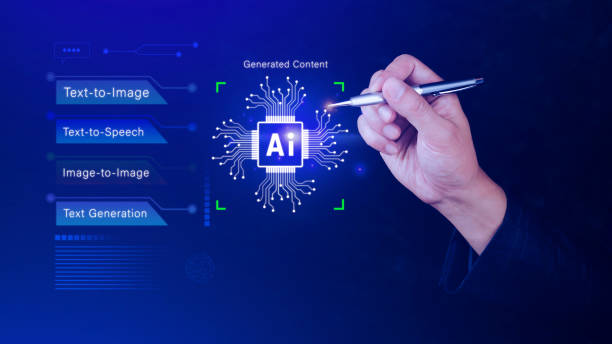
The future of #AI_Robots is very bright and full of unlimited potential.
With continuous advancements in #Artificial_Intelligence, it is expected that #Intelligent_Robots will play a much more significant role in human lives in the near future.
One of the most important future trends is the development of #Intelligent_Robots capable of more natural and closer interaction with humans.
These #Robots can assist humans in various fields such as #Customer_Services, #Education, and #Healthcare.
Furthermore, it is expected that #AI_Robots will be capable of solving more complex problems and providing more innovative solutions in the near future.
By integrating #Artificial_Intelligence with other new technologies such as #Internet_of_Things and #Virtual_Reality, it becomes possible to develop more intelligent systems capable of understanding their surroundings and interacting intelligently with them.
However, the development of #AI_Robots also requires attention to ethical and social issues.
It must be ensured that #Intelligent_Robots are used responsibly and in the best interests of society.
Ethical and Social Challenges of Using AI Robots
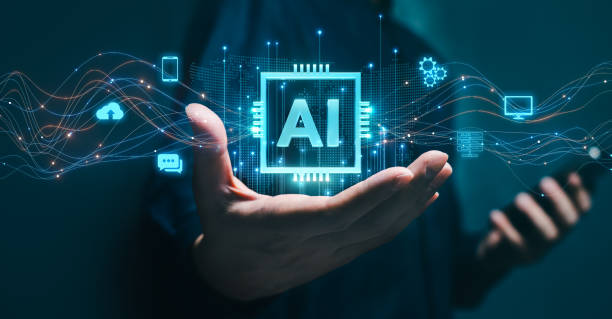
The widespread use of #AI_Robots brings forth numerous ethical and social challenges that must be seriously considered.
One of the most important of these challenges is the issue of #Privacy.
#Intelligent_Robots need to collect and process users’ personal data to provide better services.
This can lead to #Privacy violations and misuse of personal information.
Furthermore, the use of #AI_Robots can lead to discrimination and inequality.
If #Artificial_Intelligence algorithms are trained with incomplete or biased data, they can make decisions that result in discrimination against specific groups of people.
Additionally, the issue of #Accountability for the decisions of #Intelligent_Robots is also a significant challenge.
If an #AI_Robot makes a decision that results in damage or harm, who will be responsible? The developer, the user, or the #Robot itself? Overall, addressing these ethical and social challenges requires the enactment of appropriate laws and regulations and the creation of a strong ethical framework for the development and use of #AI_Robots.
| Challenge | Description | Proposed Solution |
|---|---|---|
| Privacy | Collection and processing of personal data | Enactment of strict laws and regulations |
| Discrimination | Biased and unfair decisions | Training algorithms with diverse and unbiased data |
| Accountability | Determining responsibility for robot decisions | Enactment of clear laws and regulations |
How to Choose the Right AI Robot for Your Needs?
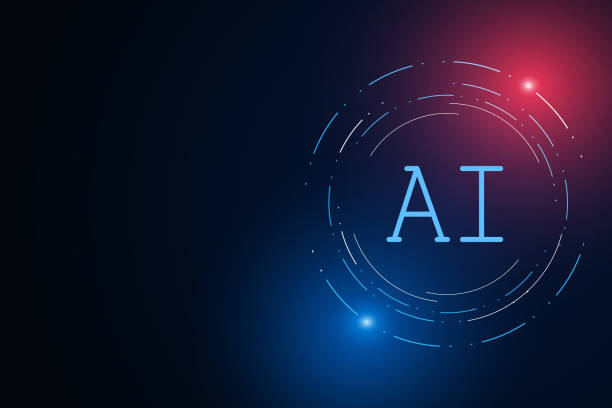
Choosing the right #AI_Robot for your specific needs requires careful consideration and evaluation of various options.
First, you need to precisely define your requirements.
What tasks do you want to assign to the #AI_Robot? How much data do you have available for training the #Robot? What budget have you allocated for implementing and maintaining the #Artificial_Intelligence system? After defining your needs, you should explore the different available options.
There are various types of #AI_Robots, each designed for specific applications.
Some #Robots are suitable for natural language processing, some for image recognition, and others for big data analysis.
Additionally, you should consider the cost, capabilities, ease of use, and technical support for each #AI_Robot.
Before making a final decision, it’s best to try a trial version of the #AI_Robot and ensure it is compatible with your needs.
You can also benefit from the opinions and experiences of other users.
Ultimately, selecting a suitable #AI_Robot requires thorough research, evaluation, and comparison of various options.
Did you know that customers’ first impression of your company is your website? Double your business credibility with a powerful corporate website from Rasawweb!
✅ Custom and eye-catching design tailored to your brand
✅ Improve user experience and increase customer acquisition
⚡ Get a free consultation!
Key Tips for Successful AI Robot Implementation
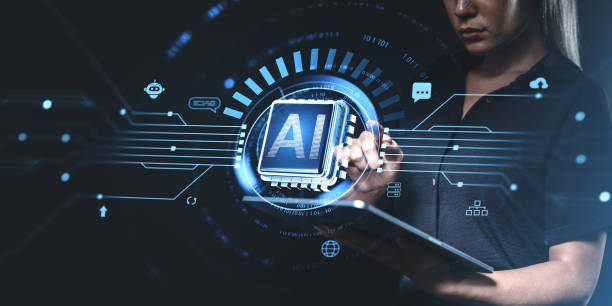
Successful implementation of an #AI_Robot requires meticulous planning, proper management, and attention to key points.
The first step is to precisely define goals and expectations.
You need to specify what results you anticipate from implementing the #AI_Robot.
Then, you must collect and prepare the necessary data for training the #Robot.
The quality of the data directly impacts the performance of the #AI_Robot.
Therefore, you must ensure the accuracy, completeness, and impartiality of the data.
Additionally, you need to assemble a specialized team for the development, deployment, and maintenance of the #Artificial_Intelligence system.
This team should include #AI specialists, software engineers, and data analysts.
After system implementation, you must continuously evaluate and improve the #AI_Robot’s performance.
By collecting user feedback and analyzing performance data, you can identify and rectify the #Robot’s weaknesses.
Finally, for successful #AI_Robot implementation, you must continuously learn and stay updated with the latest advancements and techniques in #Artificial_Intelligence.
AI Robot; An Opportunity for Transformation and Progress

#AI_Robot is a powerful and transformative technology that can create countless opportunities for transformation and progress in various industries and human lives.
By utilizing #AI_Robots, processes can be automated, productivity increased, costs reduced, and novel and creative solutions provided.
#AI_Robots can assist humans in performing difficult and complex tasks, enabling them to focus on more important and creative work.
However, the use of #AI_Robots also requires attention to ethical and social issues.
It must be ensured that #Intelligent_Robots are used responsibly and in the best interests of society.
With meticulous planning, proper management, and attention to key points, the full potential of #AI_Robots can be leveraged to shape a brighter and more advanced future.
#AI_Robots are pervasive everywhere.
AI robots can lead to growth in any business or organization.
Frequently Asked Questions
| Row | Question | Answer |
|---|---|---|
| 1 | What is an AI robot? | An AI robot is a machine capable of understanding, reasoning, learning, and problem-solving, and can perform complex tasks with relative autonomy. |
| 2 | What are the most important applications of AI robots? | Key applications include industrial manufacturing, customer services (chatbots), medicine and surgery, autonomous transportation, space exploration, and military affairs. |
| 3 | What is the main difference between an AI robot and a regular robot? | A regular robot only follows programmed instructions, whereas an AI robot can learn from data, make decisions, and adapt itself to new environments. |
| 4 | How do AI robots learn? | They identify patterns and improve their performance through machine learning algorithms (such as deep learning, reinforcement learning) and by processing vast amounts of data. |
| 5 | Can AI robots have emotions? | Currently, AI robots do not possess real emotions in the human sense. They can mimic or detect emotions, but they do not understand or experience them. |
| 6 | What are the current limitations of AI robots? | Limitations include the need for large amounts of data, inability to understand abstract concepts, lack of true creativity, ethical issues, and challenges of generalizability in new environments. |
| 7 | What is the role of AI in the development of humanoid robots? | AI helps humanoid robots to walk, maintain their balance, perceive their surroundings, interact with humans, and perform complex tasks. |
| 8 | How is the future of AI robots predicted? | It is predicted that AI robots will become smarter, more autonomous, and capable of performing more complex tasks in daily life and industry, and their interaction with humans will increase. |
| 9 | Can AI robots replace all human jobs? | It is unlikely that all human jobs will be replaced. Robots will take over many repetitive and dangerous tasks, but jobs requiring creativity, empathy, and ethical judgment will remain. |
| 10 | What ethical and social challenges arise with the expansion of AI robots? | Challenges include issues related to privacy, data security, ethical decision-making by robots, impact on employment, and accountability in case of errors. |
And other advertising services from Rasawweb Advertising Agency:
- Smart Digital Advertising: A novel service for increasing customer behavior analysis through key page optimization.
- Smart Advertising Campaign: Designed for businesses seeking digital branding through customized user experience.
- Smart Brand Identity: A creative platform for improving sales growth using real data.
- Smart Digital Advertising: An effective tool for increasing sales by optimizing key pages.
- Smart Google Ads: A professional solution for increasing website traffic with a focus on key page optimization.
And over hundreds of other services in internet advertising, advertising consultation, and organizational solutions.
Internet Advertising | Advertising Strategy | Advertorial
Resources
What are AI Robots?
Artificial Intelligence on Zoomit
Artificial Intelligence on Wikipedia
Smart Robot Articles on Virgool
? With Rasawweb Afarin Digital Marketing Agency, transform your business’s online presence. From professional e-commerce website design to comprehensive digital strategies, we are your guide to success in the online world.
📍 Tehran, Mirdamad Street, next to Bank Markazi, Kazerun Jonubi Alley, Ramin Alley, No. 6

